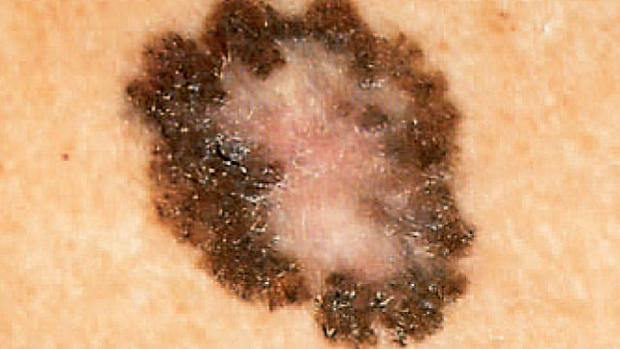Experts: Buyer beware when using dermatology apps
There are currently 229 dermatology-based apps on the market but not all might be accurate in diagnosing your skin woes, a new report warns.
A study in JAMA Dermatology published Sept. 25 claims that although most of the dermatology-based apps are free, buyers should be cautious because there are no regulations or guidelines that ensure these apps are giving correct medical information.
After reviewing the available apps on the market, the researchers found that there were apps that monitored psoriasis, diagnosed melanoma, listed sun screen or skin medication advice, educated people about dermatology and helped connect people with patient organizations. Other apps focused on specific skin conditions like acne.
There were eight apps that focused on self-surveillance and diagnosis, but they ranged in what they allowed the user to do. Some let users record skin lesions, while others let the user upload photos which where then judged by a dermatologist or by an algorithm that looked at the potential that this image was a cancerous lesion. Others allowed users to make their own judgments using listed diagnostic criteria. Some apps let people log their personal treatment methods.
Only a handful of the apps were designed with medical professional input, despite most of the apps were meant to be used by consumers and patients.
"There is a huge expansion of medical apps across all disciplines now," senior study author Dr. Robert Dellavalle, associate professor of dermatology at the University of Colorado School of Medicine, said in a press release. "This will require some caution by users but it also opens up new opportunities. I think most apps are generally safe right now, but I would not rely solely on them."
While this study didn't look at which apps were the most effective, a previous JAMA Dermatology in January tested four different skin cancer apps that were offered for the two most popular smartphone platforms. They uploaded 188 images of skin lesions. The one app that used board-certified dermatologists only missed one of the 53 melanomas. The other three apps misdiagnosed 30 percent or more cancerous melanomas as "unconcerning." Overall, for all four apps, accuracy in finding a cancerous lesion was determined to be between 33 to 42 percent.
Dr. Karen Edison, a dermatologist from the University of Missouri in Columbia who was not involved in the new research, told Reuters that technology has the ability to help doctors reach more patients, but medical professionals should always consider if the smartphone-using patient has access to medication or the ability to see a dermatologist if more procedures are needed.
"I support the use of technology in getting access to dermatology expertise for patients who would not otherwise have access to that expertise as well as for convenience for patients ... if it can be done in a high-quality way that takes patient safety into account," she said.
To assuage some of those concerns, the U.S. Food and Drug Administration announced on Tuesdaythat it will focus on regulating apps that are intended to augment already-regulated medical devices, including apps that allow doctors to make diagnoses based on medical images or charts that are sent to them through a smartphone or tablet. They'll also look at apps that turn a smartphone into a medical device, like apps that use an additional extension to record ultrasounds.
